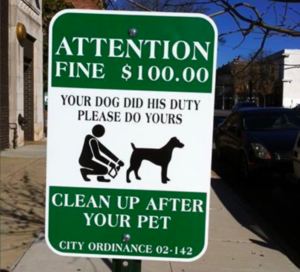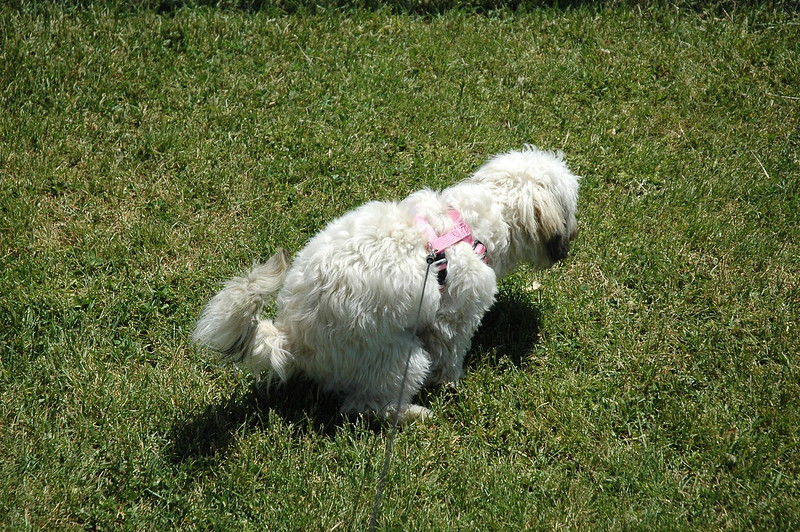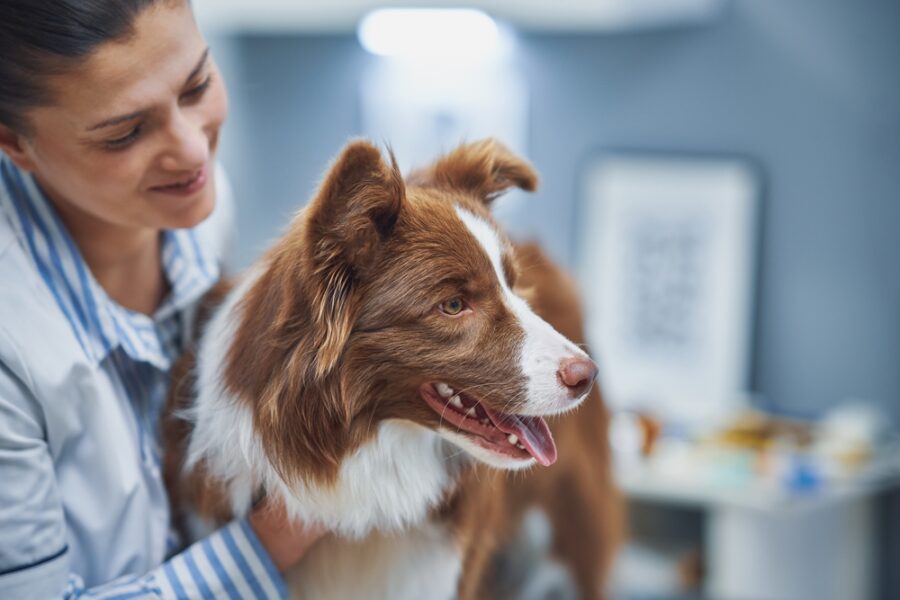It’s one thing to let sleeping dogs lie, it’s another to let their poop lay where they leave it. In this blog, we explore the common myths about dog poop and why it’s your duty to clean up after your pooch.
It’s natural fertilizer. It’s good for the lawn. It will break down naturally. These are all common myths about dog poop. There’s a reason most cities and counties have laws requiring dog owners to clean up after Fido and the 11 million pounds of “number two” produced by dogs every year. First of all, it’s just gross. Read on to find out why it’s your duty to pick up your dog’s doody (even when no one’s watching.)
3 reasons to scoop his poop
1. It’s bad for you (and your neighbors)
Your dog’s stool can host nasty parasites – cryptosporidium, giardia, tapeworm, and roundworm, to name a few. It also contains bacteria including campylobacter, salmonella, and E.coli. It’s more than a stomach ache waiting to happen. Your dog’s poop can make a whole neighborhood sick, especially if it gets into the watershed. Dog waste is one of the big hazards to rivers, streams, lakes, and even ocean water. And there’s increasing evidence that dog feces is a reservoir for antibiotic-resistant germs.
2. It’s bad for the grass
You might think dog poo is great fertilizer for the lawn. After all, you can buy nitrogen and phosphorus in the form of chemical fertilizers, or even cow manure. But a dog’s carnivorous diet means its dung is too acidic to be a good fertilizer. Grass clippings make excellent fertilizer, dog poop does not! Grass clippings contain nitrogen, but doggie doo-doo contains bacteria which can invite disease and kill the grass. Cow manure, or the poop of any other vegetarian animals like horses and sheep, is superior to dog waste and adds nutrients to the soil in your garden or lawn. Even then, the experts recommend you compost the manure before using it to enrich the soil because of the risk of disease.
3. It’s bad for the environment
Dog poop is behind a lot of bacteria in the city air, according to a study from the University of Colorado at Boulder. The nitrogen and phosphorus lead to rapid algae growth and low oxygen levels in the water supply. That, in turn, kills fish and animals that live in those bodies of water.
 Not picking up after your dog can land you in the poorhouse
Not picking up after your dog can land you in the poorhouse
If altruism and the Golden Rule aren’t sufficient motivation, how about this: Your dog’s feces can hit you in the wallet.
Leaving behind your dog’s poop in Honolulu can cost you $500. New York City, which passed the nation’s first “pooper-scooper law,” sets its fine at $250. In Chicago, the fine ranges from $50 to $500. You get the idea.
Some apartment complexes have even resorted to DNA testing to match the poop to the dog in order to find the offending owner. Not to mention, leaving behind your dog’s poop can cost you popularity points with the neighbors.
Disposing of the poop in an eco-friendly way
Dog owners have a lot of choices when it comes to disposing of dog doo — so you’re not stuck throwing a plastic bag of poop in the garbage. Consider biodegradable bags instead, or a pet waste disposal system or waste digester that converts it to a harmless liquid. Composting is also a possibility, although compost from dog waste should never be used on food plants. You can also flush it down the toilet — after all, the sewer system is literally built to handle waste. Or, as experienced outdoor enthusiasts sometimes do in the wild, you can bury your dog’s poop, although the Sierra Club is not a fan of this last idea, since dog waste is a water pollutant.
There are tens of millions of dogs in the U.S., who each excrete anywhere from half a pound to three-quarters of a pound of poop every day. Your pup may be a very good boy, but his poop is still a threat to health and the environment. Even though it’s gross (trust us, we get it), it’s your duty as a responsible human to pick up the doody.








